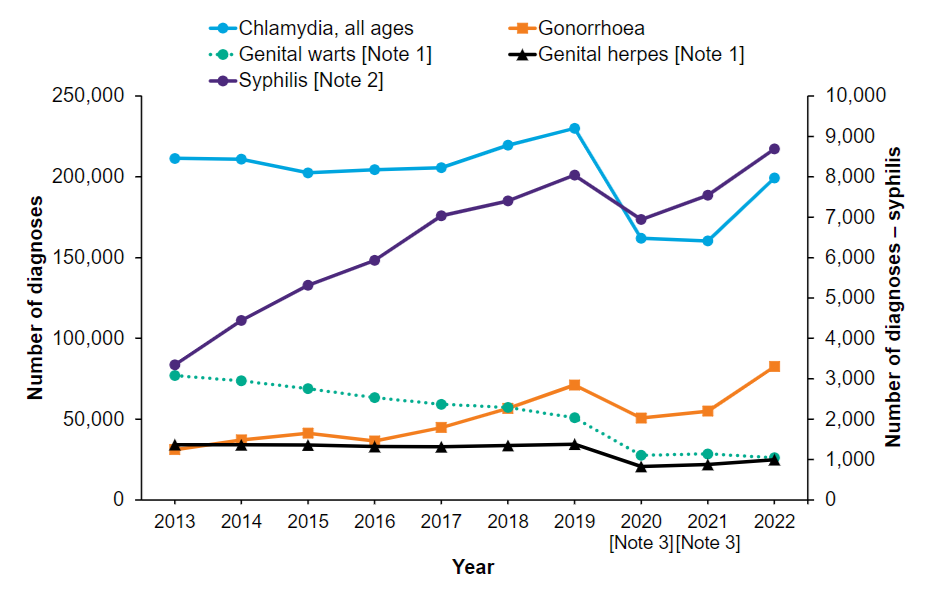Women's health toolkit
Sexual health and wellbeing
The
incidence of most sexually transmitted infections (STIs) is
increasing
over time,
apart from a reduction during the COVID-19 pandemic. The exception to this
trend is genital warts, which has been falling in incidence since the
introduction of vaccination against human papilloma virus.
The ability to take a sexual history is a key skill in general practice, covered under the sexual health topic of the RCGP curriculum. Patients who attend a sexual health clinic are expecting to be asked about their sexual history, but those attending their GP with gynaecological symptoms may not be expecting this line of questioning and may be embarrassed. If the GP explains that such questioning is routine, and is not embarrassed, then the patient is more likely to be put at ease. Sexual history taking is covered in the RCGP eLearning course on sexual health in primary care – those wanting more detail might look at the British Association for Sexual Health and HIV (BASHH) guideline on sexual history taking.
It is important to always be mindful of issues of safeguarding, particularly for those aged under 16, for whom competence to consent to intercourse should be assessed using the Fraser guidelines. A child aged under 13 cannot legally consent to sex under any circumstances and so this should always be urgently reported to social services.
More detail on individual STIs can be found on the BASHH guidelines page, which also contains guidelines about specific groups of patients, sexual violence and the management of STIs in children and young people.
More
information can be found in the following resources:
